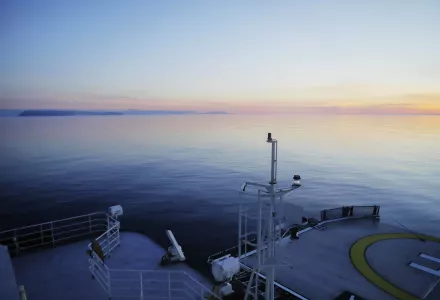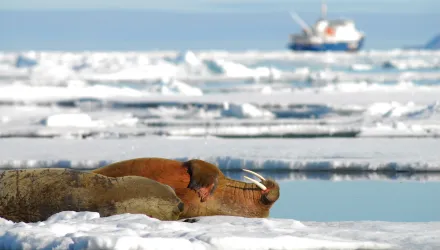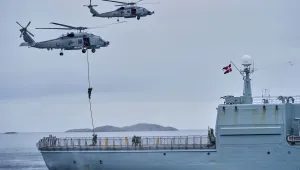
- Designation of ATBA around the Diomede Isl. could be next step to protect the BSR.
- Other potential tools include speed restrictions and ship reporting system.
- PSSA in the BSR would take more efforts and time to establish.
- Protection of the BSR will be pursued unilaterally in near future.
Abstract
Increasing shipping in the Bering Strait Region (BSR) has prompted the two coastal states, the United States and Russia, to implement measures aimed at reducing the risks to the region’s sensitive marine environment and local population dependent on subsistence economies. A significant step forward was made in 2018 when the two countries established joint ships’ routeing measures in the area through the International Maritime Organization (IMO). However, additional measures will be needed to create a comprehensive traffic management scheme in the BSR. This article focuses on analyzing potential courses of action that Russia and the United States could pursue, jointly or separately, to protect the BSR from the adverse effects of growing shipping. In particular, it studies and compares specific tools that could be applied to the Diomede Islands and adjacent marine areas, such as designation of Areas To Be Avoided (ATBAs) and Particularly Sensitive Sea Areas (PSSAs), speed restrictions, and implementation of a ship reporting system. In addition, considering the growing tensions between the United States and Russia, this article explores several potential scenarios in which the two countries implement different instruments independently of each other.
Todorov, Andrey. “Shipping Governance in the Bering Strait Region: Protecting the Diomede Islands and Adjacent Waters.” Marine Policy, September 28, 2022
The full text of this publication is available via Marine Policy.





